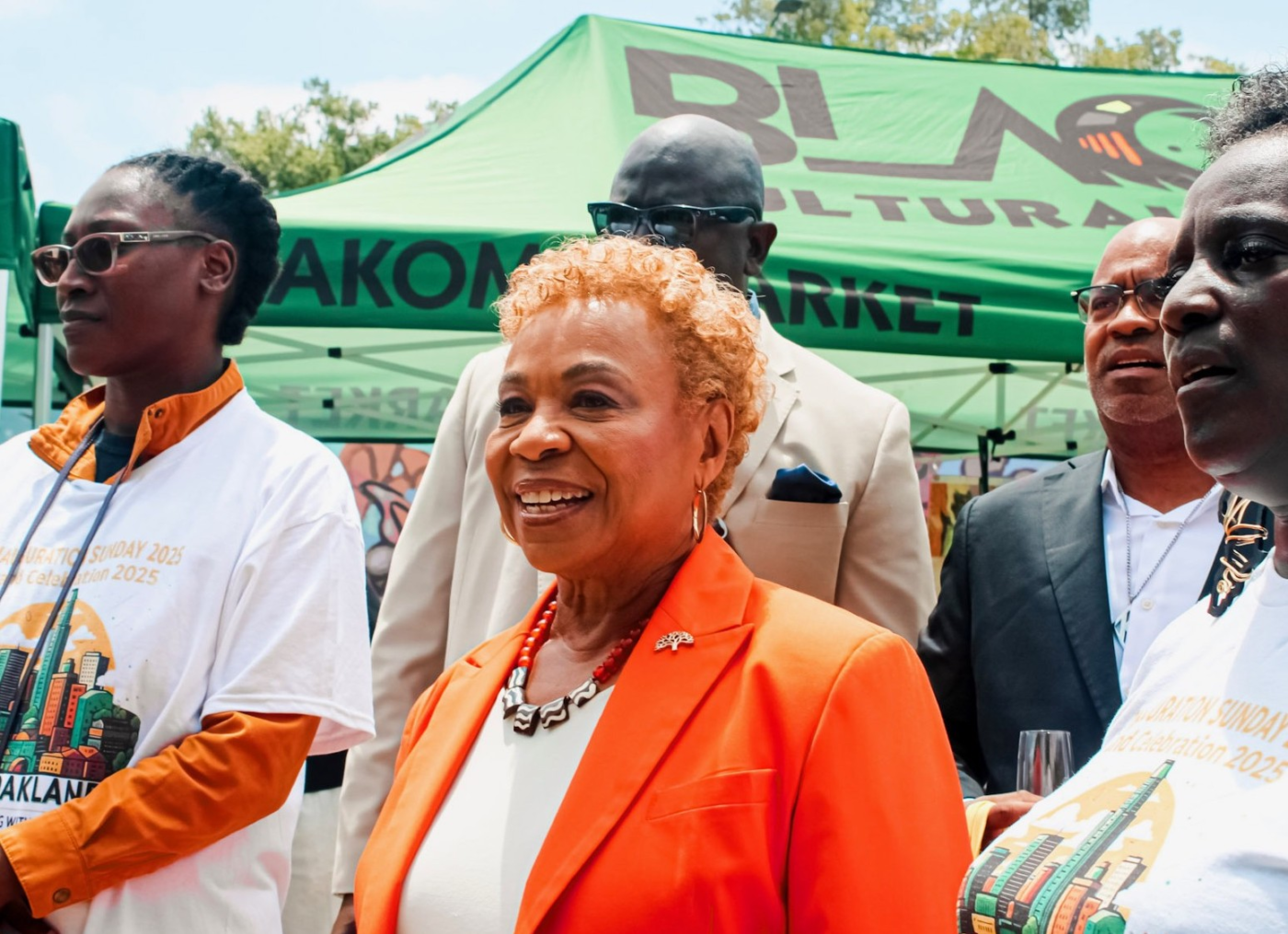🔍 No need to go searching for news.
The Oaklandside’s daily newsletter is the easiest way to stay up to speed with what’s happening in The Town.
The Oaklandside
The Oaklandside. Journalism for Oakland.
Developing: Trump sending federal agents to Bay Area | The East Bay ‘resistance’: A guide to local activism | County approves $3.6M for immigrant defense
Shortly before her April election, Mayor Barbara Lee shared her 10-point plan to jump-start action on public safety, homelessness, the local economy and more, in the first 100 days of her term. While much of the plan focuses on hot-button issues like illegal dumping, vegetation management, and the homelessness crisis, it also prioritizes permit reform.
Permit reform? It seems like the odd one out in Lee’s plan, but the topic has found a surprising limelight in recent years. Economic development groups and community advocates have complained that complex and restrictive permit rules are squashing business.
Robin Abad, ombuds for the City of Oakland, has led the charge in response to Point 6 of Mayor Lee’s plan: permit reform. The goal is to “streamline and reduce bureaucracy for small businesses.”
“Permit reform impacts so many aspects of our local economy,” Abad said. “With the right changes, more entrepreneurs will be able to realize their dreams by starting up businesses in Oakland, and we’ll be able to retain the rich and diverse small business community we enjoy here.”
Abad was eager to share the changes the city government is working on. The recent code amendments relaxed rules for businesses in Downtown Oakland, the Broadway-Valdez district in Uptown, and the area around Lake Merritt BART Station. Even more amendments are on their way this fall that will expand those relaxed rules to commercial districts across the whole city.
The changes make it easier for businesses such as medical offices, banks, tutoring facilities, pet groomers and fitness studios (to name a few) to open in ground-floor retail spaces up to a certain square-footage.
Artisanal goods makers and sellers — such as furniture making, textile production, and metalworking — could operate in commercial zones citywide with no square-footage or floor-level requirements. And businesses in these zones could have billiards tables and arcade games without a special permit.
Currently, these activities are either not permitted or require an application for review by the Bureau of Planning. Some conditional permit applications also have to go through a public hearing, where community members can weigh in, before the permit can be approved.
“We have expanded places where land use regulations don’t require extensive approval processes, so it’s much easier to open up,” Abad said. “These changes are part of stimulating local business and inviting folks to open up businesses in Oakland.”
Oaklanders attracted to The Town’s nightlife and entertainment offerings will be particularly excited by streamlined changes to entertainment venue permitting. Until recently all businesses, like arts and entertainment venues, had to apply for a special permit to sell alcohol. This required a planning commission hearing, and could take up to a year. This was a separate permit on top of a liquor license from California State Alcohol Beverage Control, the latter of which is required for all businesses that serve alcohol and is granted at the state level.
This flexible new permit now makes it easier for bars, nightclubs, theaters, pool halls, museums, art galleries, salons, and similar venues in central business district zones (specified by the Downtown Oakland Specific Plan) to serve alcohol.
Other changes on the horizon include the addition of entertainment and food sales in dispensaries that have an existing onsite consumption permit to operate as cannabis cafes. These proposed changes come in response to the passage of California State Assembly Bill 1775, authorizing cities to permit cannabis cafes that provide valid county health permits for preparation, sale, and consumption of non-cannabis food and beverages at state-licensed and locally permitted cannabis dispensaries with onsite consumption lounges.
“Visit Oakland” already offers a Cannabis Trail, and the introduction of cannabis cafes could contribute to cannabis tourism in The Town.
Changes like these require amendments to the city’s planning code. Already, the Downtown Oakland Specific Plan, adopted in 2024, prioritizes new zoning that allows flexible ground-floor uses for customer-oriented artisan production, office, and retail use.
Abad said the city aims ultimately to expand the planning code amendments to all commercial corridors in Oakland. Ideally, this expansion would go before the City Council to be adopted before the end of this calendar year.
“We have many incredible small business entrepreneurs and restaurateurs here in the city of Oakland, and that’s part of what makes Oakland beautiful and wonderful,” Abad said. “We want to encourage local enterprises to open as much as possible. So let’s cut out any unnecessary procedures and streamline the process.”
This story was written and paid for by the City of Oakland Department of Economic and Workforce Development. The Department works to bring about a vibrant, innovative, globally competitive economy in Oakland. Its mission is to increase investment in Oakland, grow the City’s economy, foster fiscal sustainability, expand job opportunities for all residents, and enhance the City’s sense of place and quality of life.
"*" indicates required fields![]()
We are part of
We’re journalists for Oakland. We amplify community voices, share information resources, and investigate systems, not just symptoms. Learn more
You must be logged in to post a comment.


Leave a Comment